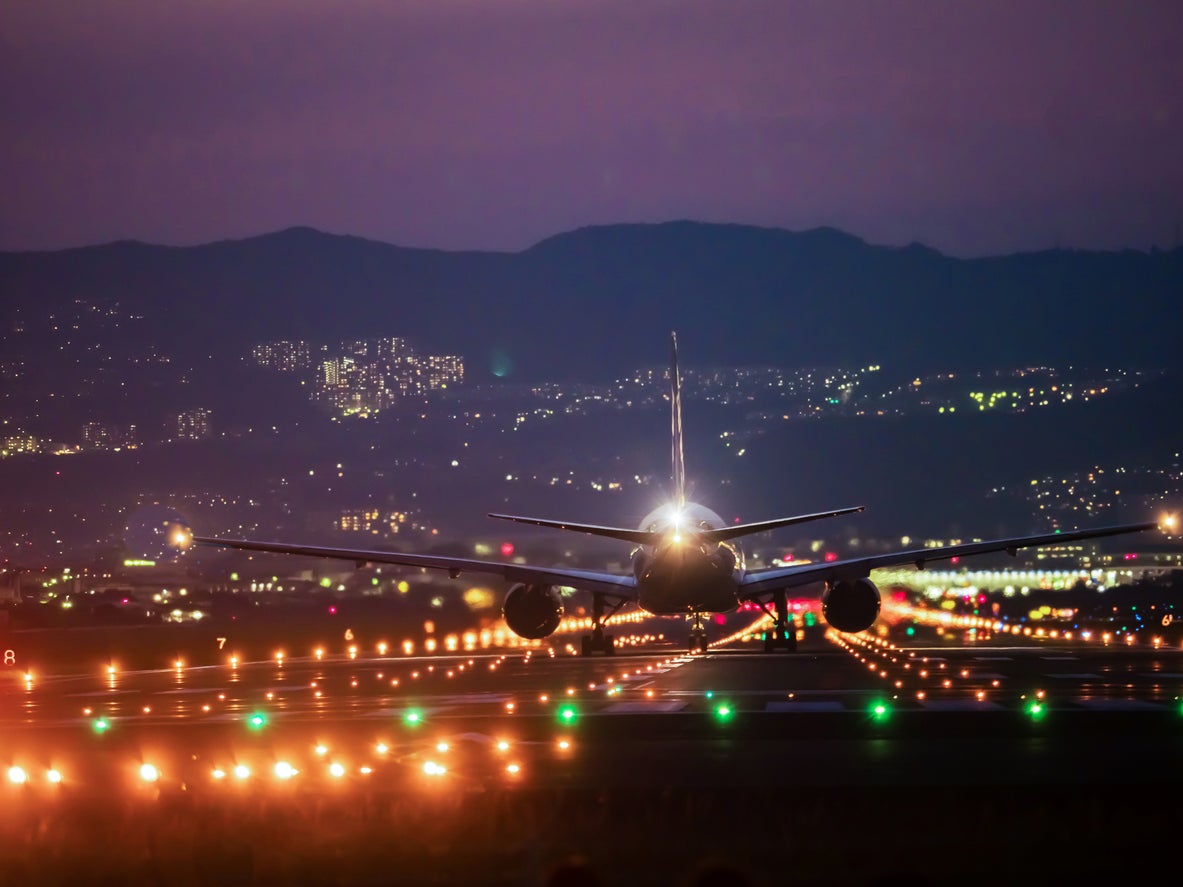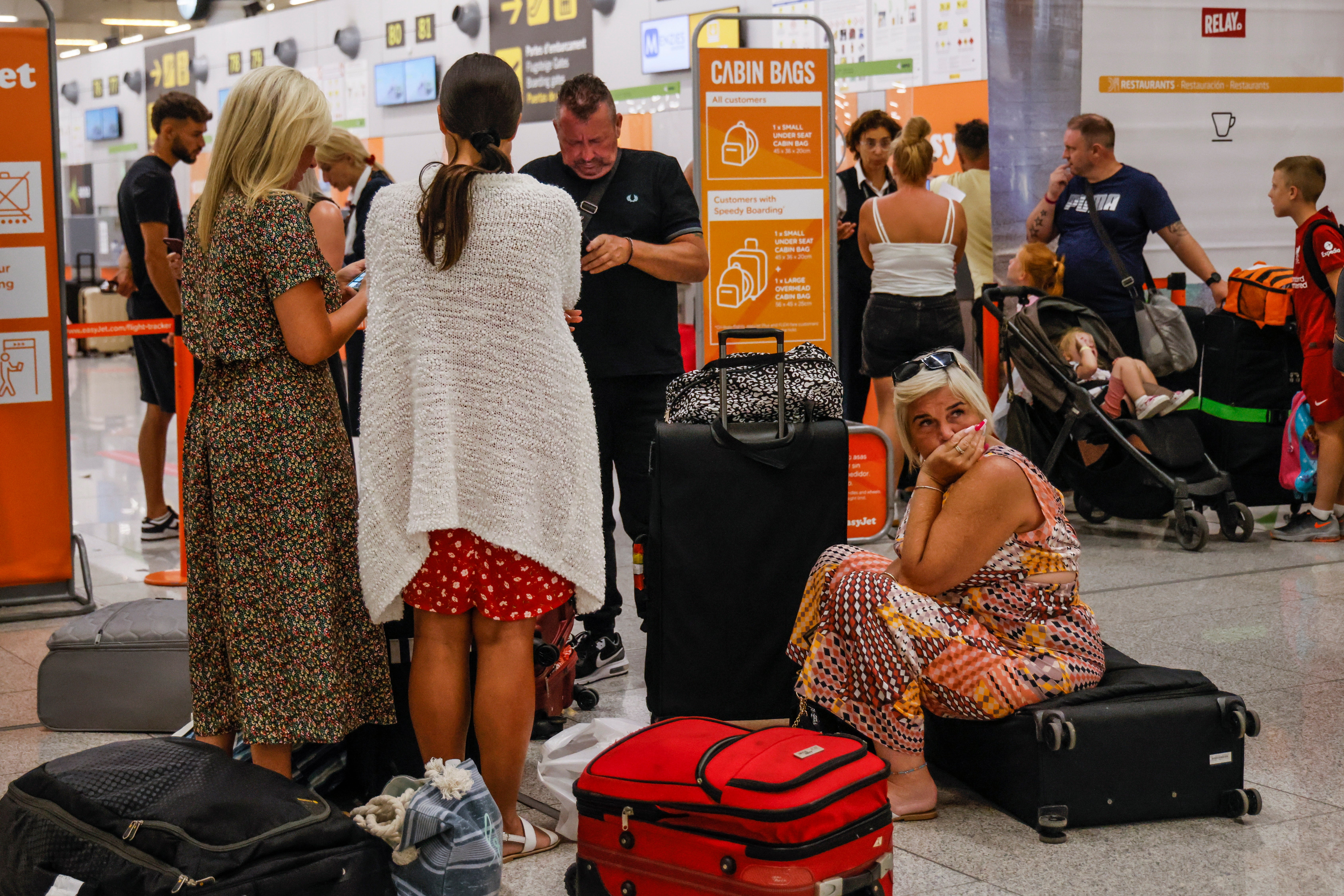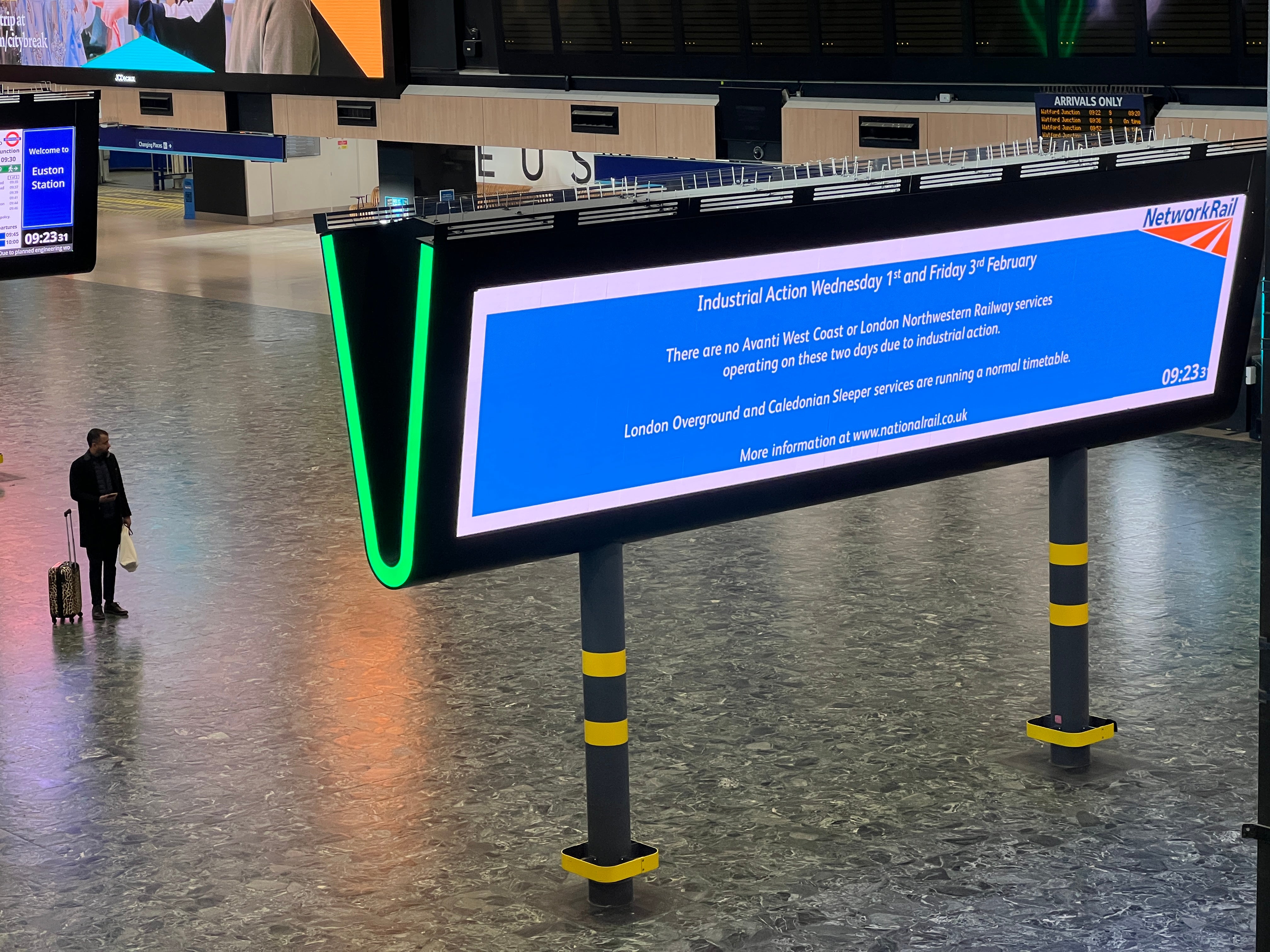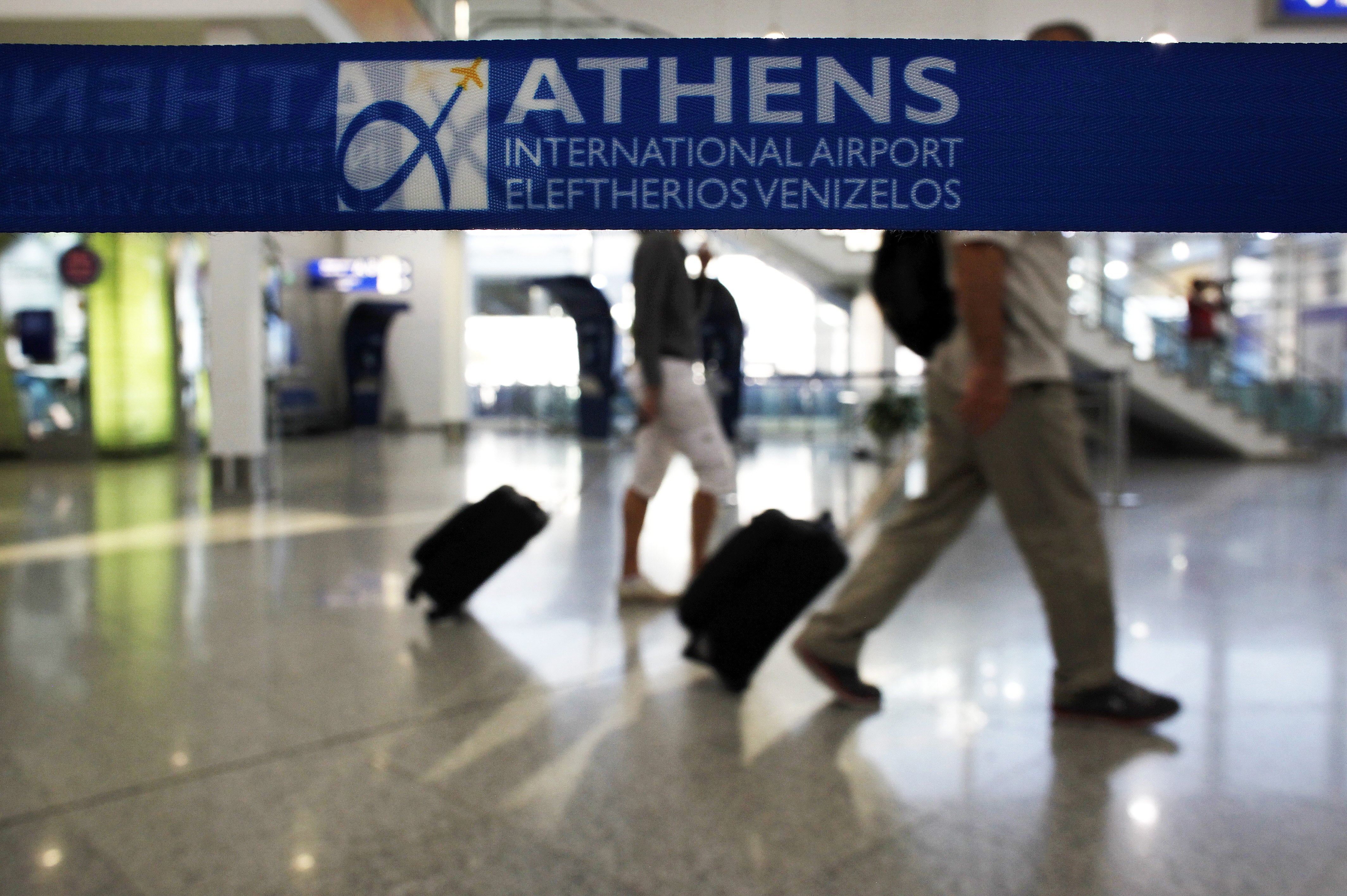What will ‘alleviating’ the ban on night flights mean?
Simon Calder talks night flights, Athens airport, airlines’ duty of care and the effectiveness of train strikes


Q After the aviation chaos this week, the transport secretary, Mark Harper, said he was going to put in place “temporary alleviations to allow night flights” at some airports. What does this mean in practice?
Name supplied
A The one major UK airport with significant night-flight restrictions is London Heathrow. No departures are scheduled between 10.50pm and 6am, nor arrivals between 10.55pm and 4.40am. Note those are scheduled times, and arrivals can vary; Heathrow also has a voluntary ban in place that prevents flights from landing before 4.30am. Some arrivals from South Africa and Australia are held on the ground before departure so they don’t arrive too early.
At an airport with 1,300 movements a day, though, things can go awry. Airlines have some discretion to operate out of the “permitted” hours up to certain limits; sometimes even with only mild disruption, departures may stray beyond 11pm, and I have been on a delayed Dublin-Heathrow flight on British Airways that touched down at 1am.
The whole point, of course, is to limit the noise that residents in west London and east Berkshire endure. Ministers balance that aim against a need to get thousands of people to where they need to be. Temporary alleviations, as many people living close to Heathrow will testify, are far from unusual. What is unusual is that the government mentioned it. With the extreme disruption that the air-traffic control meltdown caused, allowing extended use of Europe’s busiest airport will help airlines (particular BA) to get back on track. On Monday night there were a number of arrivals well after midnight, and the same was likely to happen on Tuesday.
The issue shows the overstretch in airport infrastructure in London – and may intensify the debate over a third runway at Heathrow, to build in a little more resilience (and significantly increase the number of flights).

Q My daughter and her three friends have been stuck in Palma de Mallorca since Monday – when their flight back to Manchester was cancelled. They had no luck getting replacement flights, and the airline was only too happy to offer a refund.
Does this allow the airline to abdicate its “duty of care” as a result, meaning that all additional expenses will now have to be at their own cost? They have now managed to get back into their original hotel and book replacement flights to Glasgow on Friday, then rent a car back to Warrington.
John R
A Their experience is one in tens of thousands of similar stories. If I understand this correctly, they could not find any alternative flight with the airline, and decided to take a refund while they sorted things out themselves.
Often in cases of serious disruption, airlines are eager to offer refunds because it gets them off the hook. Typically, in my experience, they will say that their responsibility ends once you accept a refund. You cannot claim for rerouting on alternative transport, or for accommodation and meals.
Legally, that may be the case – but in the case of the after-effects of the air-traffic control failure I don’t believe airlines will be able to take that stance. Your daughter and her friends would have been extremely glad to get replacement flights on any airline. That is what European air passengers’ rights rules stipulate. The airline should also proactively have organised accommodation and meals. That, plainly, did not happen amid the chaos on Monday night. I imagine a good few people mistakenly asked for a refund.
I predict that the airlines will be under pressure from ministers and the Civil Aviation Authority to take a “no-quibble” approach in cases in which they did not provide the level of care that the law requires. So your daughter and her friends should claim – but the final settlement will have the amount already refunded subtracted.

Q The rail unions are walking out again. Do you think these strikes are losing their impact now?
Scott G
A Yes. Since the summer of 2022, train drivers belonging to Aslef have walked out on strike a dozen times – including today. Thousands of trains have been cancelled, with a few train operators (notably Greater Anglia, GWR, LNER and Southern) running a skeleton service during limited hours. Aslef members will also take “action short of a strike” tomorrow in the form of a ban on non-contractual overtime. It will coincide with another walkout by up to 20,000 members of the RMT union in a parallel national dispute.
The employers are the 14 train operators that are contracted by the government to run services in England (with some straying into Wales and Scotland). The railway was renationalised during the Covid pandemic. Some operators are publicly owned – such as LNER, Northern and TransPennine Express – and others are run by private companies in return for a management fee. As a result, any settlement must be signed off by ministers who are concerned about the collapse in rail revenue since the Covid pandemic. With taxpayers pouring billions into the railway, the only way to award even a modest increase is to fund it out of efficiency savings, they say.
The unions are having none of it. They demand a decent no-strings pay rise that takes into account the high level of inflation. Aslef and the RMT are prepared to discuss reforms, but these must be negotiated separately – and be accompanied by commensurate pay boosts, as is customary. The unions are banking on rail being “too important to fail”; eventually, they believe, the government will cave in to their demands.
Ministers, meanwhile, take the view that the strikes are indeed losing their impact. Unlike the rail strikes in the 1980s, when the country ground to a halt, many people can get by even if union members walk out. Only a minority of people rely on rail, and they can find workarounds: taking buses, coaches or even planes on strike days, or working from home. Car owners will simply drive.
The government believes many rail workers, having lost thousands of pounds by taking industrial action with no obvious benefit, will trickle back to work. On an RMT strike day more than half of the nation’s trains will run. Aslef train drivers are likely to continue for longer; they have much higher average salaries, around £60,000, and their strikes cause more disruption than the RMT’s. But the long-suffering passenger, caught in the middle, is getting accustomed to regular strikes and is reducing how much they rely on an unreliable railway. As travellers melt away, the impact of industrial action falls still further.

Q In two weeks I am flying to Heraklion via Athens with Aegean Airlines. The waiting time for the connecting flight will be around 3 hours 40 minutes. Athens airport is strong on shops but weak on seating, particularly during the summer season and I would like to relax in a lounge. I wonder if it makes sense to book a pass to the Goldair lounge in advance, or should I just turn up and pay on the spot? I am concerned that a delay in arrival would be a loss of money if I book in advance through loungepass.com. On the other hand, I do not know if Goldair admits passengers without a reservation.
MSF
A I believe Athens airport is an excellent hub; you may possibly remember the pre-2001 airport, which was handy for the centre of the Greek capital but an overcrowded shambles. However, I agree the 21st-century edition can get busy. With airport lounges typically allowing a stay of three hours, your timing is fairly perfect. In your position I would do exactly the same: while I like escaping from airports during long-ish stopovers, unlike (say) Madrid or Nice, the Athens airport area does not have especially accessible attractions. Do not, though, book a lounge in advance. Possible events include your flight to Athens running two hours late, removing most of the benefit of a lounge; the lounge itself being particularly crowded, which might even involve you having to wait before being admitted, again eroding the value; or it could turn out that you are at the airport at a quiet time and actually happy to pause at one of the pleasant cafes with a view of the activity on the apron.
I have not booked a lounge through loungepass.com and personally, I would rather deal directly with the staff on the door. Finally, a company called SkyServ runs, I understand, a rival lounge – and it may be worth comparing the two.
Email your question to s@hols.tv or tweet @simoncalder






Join our commenting forum
Join thought-provoking conversations, follow other Independent readers and see their replies
Comments